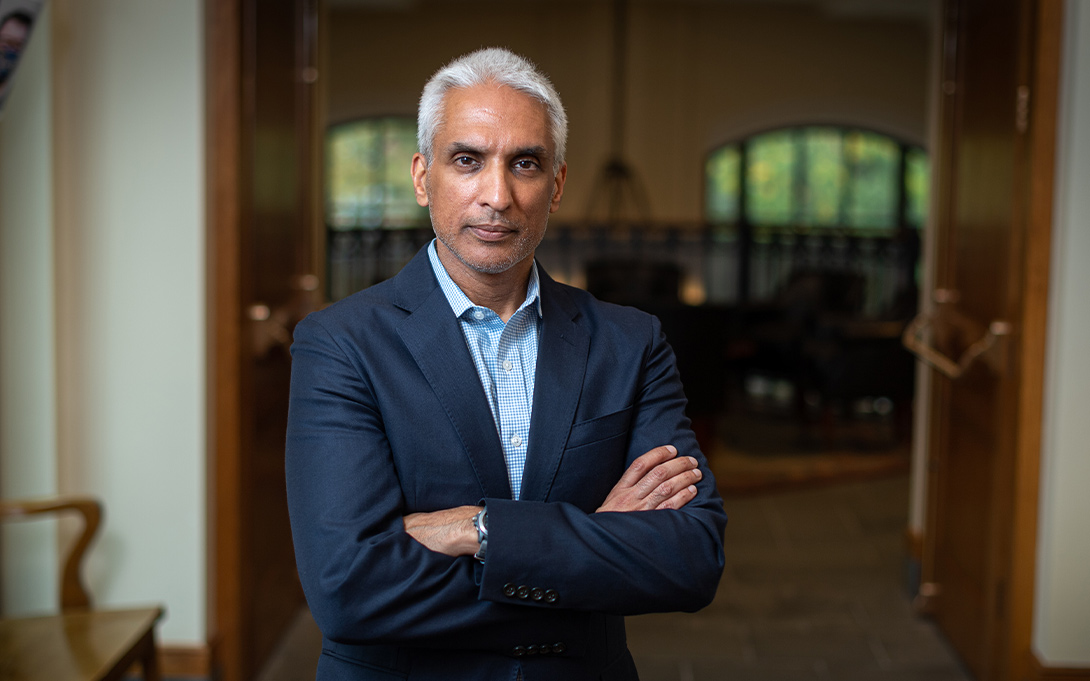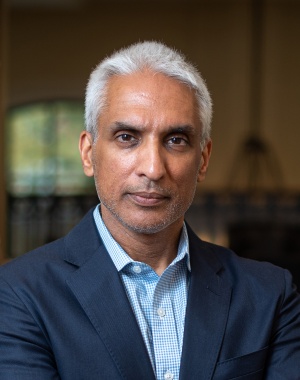
The past two weeks have witnessed mass shootings in Buffalo, New York, and Uvalde, Texas, among other gun violence. Questions about preventing those situations, as well as law enforcement response, abound as the country takes stock of the lost lives. Those are among the domestic security and terrorism concerns confronting the U.S., including an alleged assassination plot against former president George W. Bush and fears about violence in the abortion debate. Ford School professor of practice Javed Ali has been widely quoted giving analyses on these developments.
The Uvalde school shooting resulted in the deaths of 19 students, two teachers and the gunman. In the days after the shooting, the reaction of law enforcement officials at the time of the attack came under scrutiny. Speaking to BBC News just after the shooting, Ali said, “It was a really difficult situation. This is unsettling to hear that it took almost an hour for the law enforcement officials to finally enter and confront the gunman. They faced a very difficult situation; they weren’t prepared for a gunman with an automatic weapon…The training that has been developed over the years was for the first-on-scene to enter and neutralize the shooter if they could. Did they have the capability to do that? We just don’t know.”
The next day, when more details emerged, Ali, again on BBC, noted, “There will have to be a reckoning going forward in terms of the accountability for the strategic decisions that were made, the tactical ones that were made. There will be consequences for the lack of action.” He also suggested creation of an independent agency that can look at mass shooting incidents and learn more general lessons about reaction and prevention.
One law enforcement agency that was on the scene in Uvalde was the U.S. Border Patrol Tactical Unit (BORTAC). Ali told CNN, ”It's not unusual: Customs and Border Protection officials can operate within 100 miles of a U.S. border, and have a major presence in many border communities." Ali compared it to elite Special Weapons and Tactics (SWAT) teams, the military-like units within U.S. police forces, using specialized or military equipment.
After the Buffalo shooting, in which 10 people were shot, Ali wrote in The Cipher Brief, “In the aftermath of another national tragedy where senseless and hate-filled violence has claimed the lives of innocent victims, a review of available policy options to tackle the threat from future lone wolf attacks is necessary.”
He concludes that, “It still seems more likely for meaningful reforms to be driven in the technology and social media sphere as opposed to those implemented from Washington D.C. – either by Congress or the Executive Branch – that will take more time and will involve moving past the partisan gridlock that makes it difficult to pass any legislation—especially on hot button topics like gun control and reform.”
Regarding the wider fight against domestic terrorism, Ali was featured in a PBS special report which gives an overview of the many mass shootings that have plagued the country in recent years. “These types of incidents weren’t just run-of-the-mill crimes. Potentially we could have gotten ahead of some of these threats. Or at least called them something else. That would have given a different context to the threat and perhaps led to different decisions about what to do. But we didn’t and we’re left with the situation we’re in now.”
Ali also spoke with KNX about the alleged plot to assassinate former president George W. Bush. “It shows the long-standing grievances and resentment that folks, 20 years after the initial invasion of Iraq, still have towards senior government officials including former president Bush. It is a pretty textbook case of a counterterrorism operation. They started to build a criminal case which led to the charges and also an intelligence case. Concerning domestic terrorism, this is what the FBI does day-in and day-out,” he commented.
Another threat looms over the horizon. As the Supreme Court prepares to rule on the right to abortion, there are fears that the abortion debate may become more violent. Ali told ABC News, “The leaked Supreme Court opinion on abortion has already triggered an intense political and cultural debate on this topic, and it is very likely it will be a key driver that motivates domestic extremists on different ends of the ideological spectrum to engage in acts of political violence against targets whom they perceive as legitimate.”
You can read and see the original stories here:
Alleged assassination plot against George W. Bush uncovered, KNX, May 31, 2022
A Border Patrol tactical unit killed the Texas gunman. The elite force has played key roles in the US, CNN, May 29, 2022
Texas Shooting Follow-up, BBC, May 28, 2022
Texas School Shooting, BBC, May 27, 2022
Technology Offers a Practical Step to Thwart Violent Attacks, The Cipher Brief, May 23, 2022
Domestic violent extremists infiltrating abortion debate: DHS official, ABC, May 17, 2022
Extremism in America - Escalation, PBS, May 10, 2022
